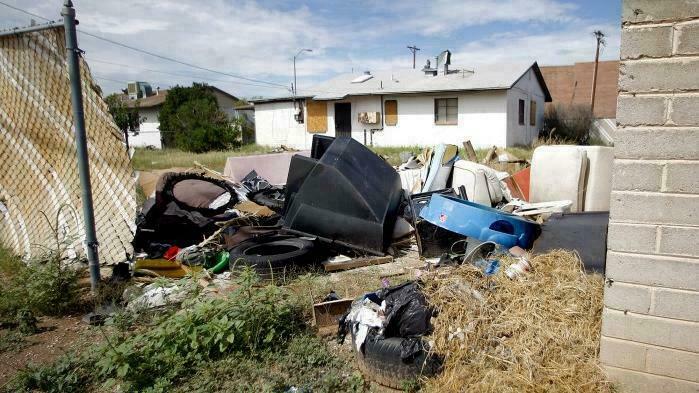City of Blackwell passes new ordinance to target weeds; trash code violations

The Blackwell City Council met Thursday night for one of its shortest meetings of the year so far, approving a new city ordinance regarding weeds and trash in an attempt to hold property owners more accountable for the appearance of their yards.
The meeting began with the Blackwell City Council being presented with a jersey for the Blackwell Flycatchers Baseball Team.
The semi-professional Pecos League team will call Blackwell it's home this summer.
The team recently hosted try-outs at Blackwell’s Morgan Field, where the team will play the summer 2023 season.
The Council heard from CPA Russ Meacham on the city’s financials, noting that the City of Blackwell is up overall on sales tax revenue.
Moving on, the Council approved Resolution 2023- 0001, which will allow the Council to unanimously agree on purchasing items up to $5,000.
Anything over $5,000 will be presented to the Council, as usual, to go out for bid on.
Following that approval, the Council was presented with Ordinance 2022-03 with the aim to clean up properties around town in regard to weeds and trash.
City Attorney Bryce Kennedy set up the ordinance.
He said: “[The City of Blackwell] has been bringing weeds and trash and accumulation of junk cases to the judge, and there are some people that just don’t care. The judge can fine them, and they just won’t pay, and it’s a mess – it’s a health, safety, welfare issue.”
Kennedy said the problem must be dealt with at an administrative level. The ordinance would give City Manager Jerry Wieland and/ or his designee the ability to handle the cases, brought by Code Enforcement. Wieland or the designee would then take action on the property with the property owner for a window of time up to six months, in extreme cases.
The ordinance reads:
“The term ‘weed’ includes but is not limited to poison ivy, poison oak, or poison sumac and all vegetation at any state of maturity which exceeds 12 inches in height except for healthy trees, shrubs, or produce for human consumption grown in a tended and cultivated garden unless such trees and shrubbery by their density or location constitute a detriment to the health, benefit, and welfare of the public and community or a hazard to traffic, or create a fire hazard, or interfere with the mowing of said weeds.”
It goes on to say that, regardless of height, weeds also cannot harbor, conceal or invite deposits or accumulation of trash, rodents or vermin.
They cannot give of unpleasant or noxious odor or constitute a fire or traffic hazard. The term “weed” does not apply to tended crops and agricultural land more than 150 feet from land zoned for use other than agricultural.
The term “trash” refers to any refuse, litter, ashes, leaves, debris, paper, combustible materials, rubbish, offal, waste, or any matter of any kind or form which is uncared for, discarded or abandoned.
The ordinance states that no entity, person or corporation owning or possessing real property within the City of Blackwell’s corporate limits shall allow trash to accumulate or for weeds to stand or grow in the property. Those that violate the ordinance can be liable for a fine of up to $250 plus court costs, state assessments and fees.
In this way, Kennedy explained, the city would have a clearer line of communication and action in extreme cases of code violation when dealing with property owners.
Next, the Council approved a mutual aid agreement between the City of Newkirk and the City of Blackwell. The meeting ended shortly after 6:30 p.m.
Please support The Blackwell Journal-Tribune by subscribing today!
You may also like:








